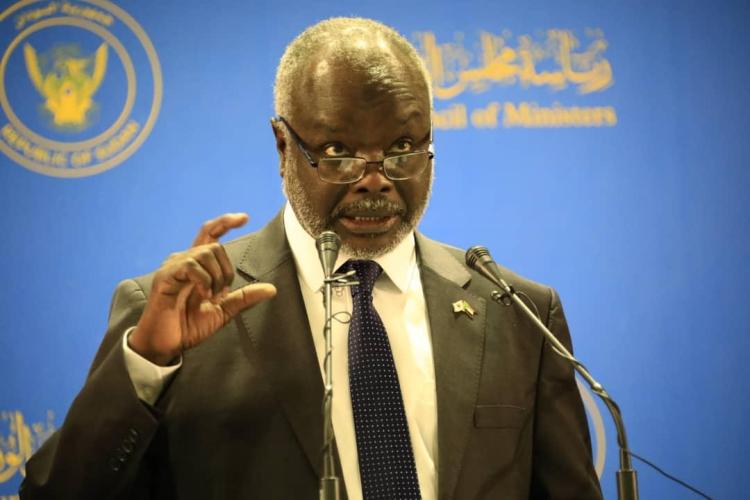Finance minister criticised for lack of clarity in new Sudan budget

Finance Minister Jibril Ibrahim (File Photo: Social Media)
KHARTOUM / OMDURMAN –
As Sudan witnessed protests demanding improvements in health and education, Economist Haisam Mohamed Fathi told Radio Dabanga that the 2023 national budget, approved by the Council of Ministers two days ago, “far from heralds a transition to a new phase for the Sudanese economy.”
“The Minister of Finance has not clarified the percentages of the budget deficit and other deviations,” he said. New future services and industries, investment opportunities, and laws that stimulate investment were also left out of Sudan’s new annual budget, which was leaked earlier this month.
Fathi also criticised Finance Minister Jibril Ibrahim for talking about increasing national production without a plan in place. “We expected an expansion of the tax umbrella, steps to prevent tax evasion, improvement of the tax collection system, combating smuggling, expansion of the list of financiers, and the inclusion of the informal economy in the formal economy. The minister ignored all of that.”
Resistance committees in the Sudanese capital organised protest marches to the Republican Palace in Khartoum and the Parliament buildings in Omdurman under the slogan “Free Health and Education” on Tuesday.
Many teachers responded to the calls of the Sudanese Teachers Committee and joined the demonstrations.
The security forces used tear gas extensively on the demonstrators.
Serving the coup
For his part, economic analyst Kamal Karrar told Radio Dabanga that the 2023 national budget “further impoverishes and starves Sudanese people while seeking to serve the goals of the coup.”
Karrar said that the revenues and expenditures budget figures will serve the military and security institutions, indicating that spending on the productive sectors, services, and development is not clear.
“The planned expenditures in the budget are huge and exceed SDG8 trillion. The revenues will be fed from customs fees and taxes which will lead to new price increases of goods and services.”
He pointed to a large deficit in the budget, which will be covered by borrowing from the banking system, which will increase inflation rates and lead to a deterioration in the value of the pound.
Price increases
Fathi also told Radio Dabanga that “people can hardly bear the recent price increases. Their livelihoods are collapsing.” This year’s budget does not accommodate challenges to Sudan’s economy, especially in light of the global economic crisis, he said. “The budget ignores the high rates of debt, unemployment, and poverty” in Sudan.
At the end of December, merchants in Khartoum complained of declines in sales by at least 30 per cent. Trader Majdi Gamareldin told Radio Dabanga that the recession continues and the stability of the Dollar rate is not improving the market. His colleague Mohamed Yousef complained that though goods are available and prices are low, there are no buyers in the markets.
Taxes and fees have increased at rates ranging between 500 and 1,000 per cent since the beginning of 2022 in Sudan.
In an interview with Radio Dabanga earlier this month, Karrar said “the budget for this year will be funded by the pockets of ordinary Sudanese people by increasing taxes and prices.” He warned of great deterioration in the economic conditions, referring to the ongoing strikes being organised by teachers, university lecturers, students, researchers, bus drivers, meteorological workers, tax bureau employees, and various other sectors.
Hasan Bashir, a professor of economics at El Nilein University, ruled out an economic resolution through the continuation of grants, aid, and loans from abroad in an interview with Sudan Today on Radio Dabanga in mid-January. He pointed to the “country being in a state of anticipation for the final stage of the civilian-military agreement leading to the formation of a government.”











 and then
and then